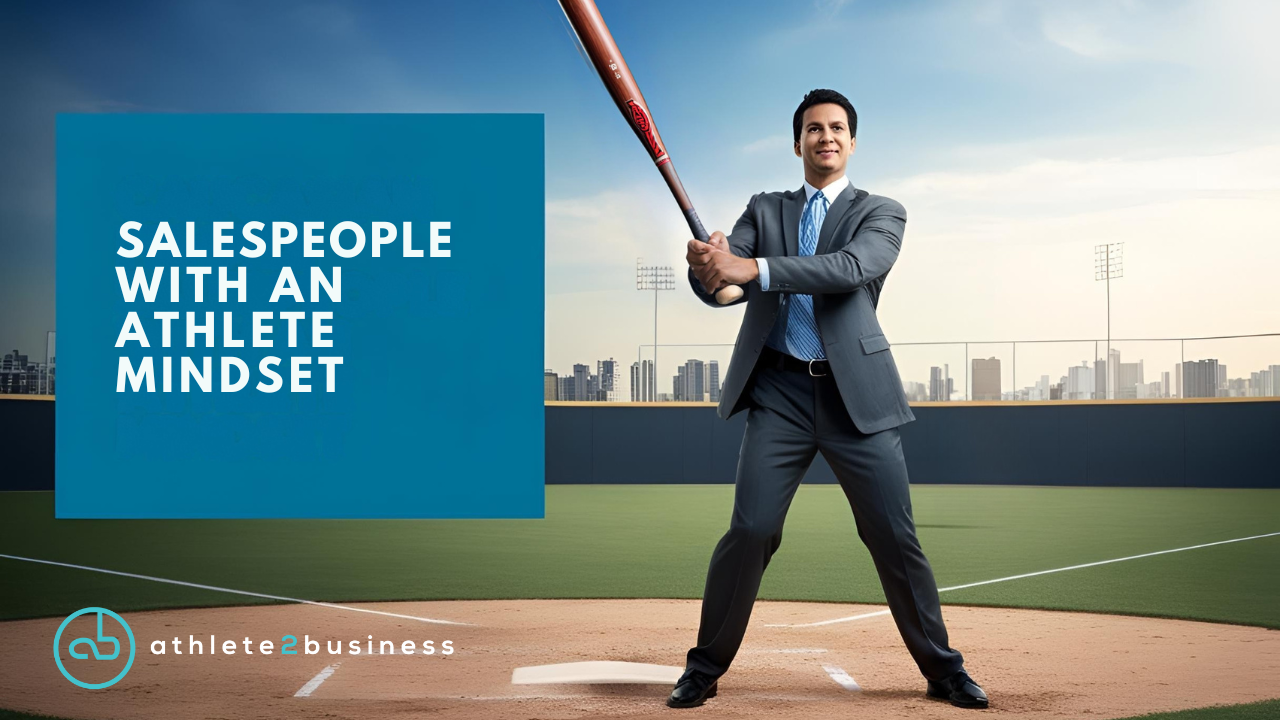Meet the founder
Meet the founder
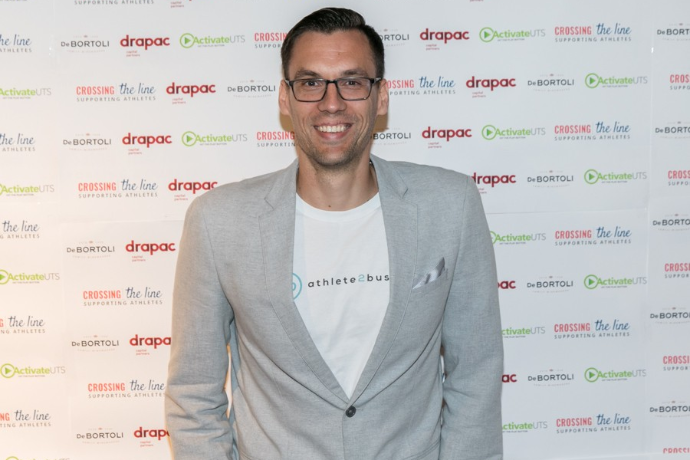
I fell in love with the game of basketball at age 12. After growing too tall for football (my first love), my dad suggested I join the school basketball team. I did kinda look awkward on the football pitch, being 2 heads taller then everybody and probably 3 steps slower, I decided basketball it is!
As soon I stepped on the court, it was an instant love story.
My natural footwork ability and hand eye coordination (probably developed from playing football from age 3) plus my height enabled me to dominate instantly. Basketball became a passion. I gained a deep desire to keep playing, winning and continuously getting better.
That same year I started playing, I watched this Michael Jordan guy play and wanted to be just “like Mike.” C’mon, if any pro baller out there says they didn’t wanna be just like Mike, they lying! I began having this deep obsession for the game – dribbling the ball to and from school, sleeping with it, playing before, during and after school.
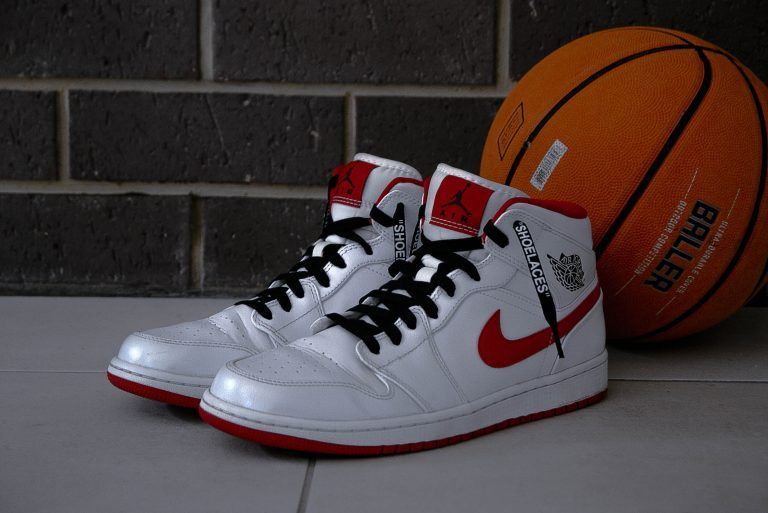
It’s all I ever spoke about and all I ever wanted to do!
I had a dream and it was to play college basketball and become a pro basketball player!
Given this love and obsession for the game, I quickly started emerging as one of the best players in the country for my age. Towards end of high school all my hard work started paying off as I was awarded a scholarship at the Australian Institute of Sport (AIS), where I played alongside some of today’s NBA stars and greatest Aussie sports heroes – Patty Mills, Joe Ingles and Aaron Baynes to name a few.
The AIS not only gave me a chance to make my dreams a reality, but more importantly it taught me the meaning of hard work and how to fight for what you want.
Our days consisted of 5+ hours of training, school, studying, physio work, learning about nutrition, health, body and mind. It taught me that suffering is good (I learned that many years after), discipline, work ethic, time management, resilience, how to compete, team work and much more – lessons that I still carry on today.
The passion, desire and hard work then led me to a full basketball scholarship at Furman University, a NCAA division 1 school in South Carolina. A dream come true!
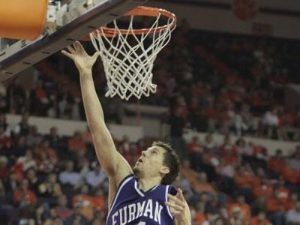
During those 4 years – I competed against some of the best 18-24 year old’s in the world (including Steph Curry – had to throw that in there), met some amazing people from all over the world, graduated with a degree in Communication and further learned the value of hard work, discipline, time management, team work, knowing how to compete, being resilient and gaining grit.
Most importantly, studying overseas, competing at such a high level and being in the public eye I gained empathy, learned how to be personable and build relationships with multiple personalities and people of different cultural backgrounds. I also improved my communication and negotiation skills.
I didn’t know this at the time and didn’t figure it out until years later but my biggest lesson in University was how to be emotionally intelligent.
All my energy, passion and focus still remained on basketball which upon graduation led me to a professional contract in Europe playing across Greece, Cyprus, Macedonia and Croatia. Another dream come true!

Two years into my pro career, it all came crashing down…I developed a serious knee issue, had 2 surgeries and was forced to sit out for at least 1.5 years. I returned home to Sydney and had no choice but to find a job. I was lost!
I didn’t know what I wanted to do, had zero skills (so I thought) and no confidence in anything outside of basketball. I didn’t know who to turn to for help or how to even go about finding a job. I felt completely useless, worthless and sad. My self esteem was at an all time low and I had no hope for any kind of future. This lasted for the whole year and half during my knee rehab.
When I’m used to waking up everyday chasing a dream and following a passion/obsession, I didn’t know what to do with myself when that dream was dead. I had no other passion or dream to chase and it felt empty and hard to accept and to move on.
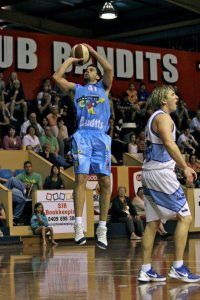
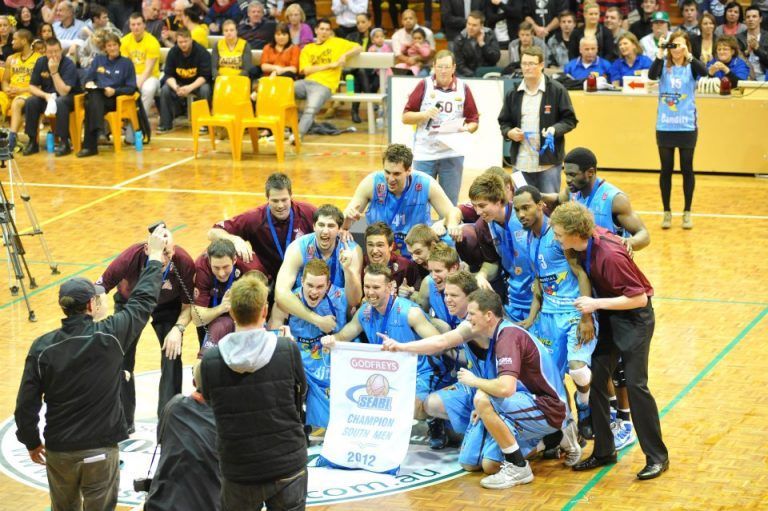
After my knee somewhat recovered, I was good enough for a semi-pro contract in Albury-Wodonga and it was the start of the best thing that happened to me (career wise). To supplement my basketball contract I needed to get a full time job as well. I was lucky enough to meet a media sales manager who saw the potential in me and offered me a job as a sales rep for one of the biggest media companies in APAC (their Albury branch). After 6 months in the role she said “you’re an elite athlete, I knew you had the mongrel, fire, resilience and work ethic in you to be a successful sales rep. I can tell you didn’t know that but I was confident enough to get it out of you!”
And boy was she right!
I began to accept the fact I wasn’t going to be a pro baller in Europe anymore and started obsessing about my new found career – sales! I learned to tap into my
competitive fire, resilience, discipline, work ethic and drive from basketball and apply it to my media sales job. I started to succeed.

The harder I worked in media sales the more successful I got! Same philosophy as sport. That basketball team I was a part of was the hardest working, most close knit and dedicated team I ever played on. That’s why we won! I was clever enough to apply those same principles into business and three years later it all paid off as I received a promotion into the Sydney office and moved back home.
Although my business career was now well established and flying, my basketball career was over forever.
Then it hit me! What’s my dream now? What am I passionate about? What am I working towards? I have no fulfillment in my life anymore, how do I find it again??
Like basketball, I began obsessing about becoming a successful business professional, that’s all I could do. I somehow had faith that my next passion would find me, as long as I kept trying to be the best sales person I can, even though I wasn’t passionate about my current job. I began listening to business podcasts, reading books, taking public speaking & presentation courses, sales training and more. In the next 3 years I became infatuated with entrepreneurship.
I still wasn’t passionate about my job and I wasn’t 100% happy, but by listening to all those podcasts, reading business books and trying to perfect my sales process I could somehow smell my passion around the corner.
Along my business journey, I met a lot of ex-athletes who were successful in business by learning to apply the skills and attributes gained from their sport. Like myself, I also met a lot of athletes who needed a help in hand in applying the skills and attributes from sport into the business world.
That’s when I had a light bulb moment. I knew businesses can benefit from having athletes on their teams and I knew I could help other athletes transition better then I did by helping them apply the skills from their sport into the business world. My passion was born – athlete2business!
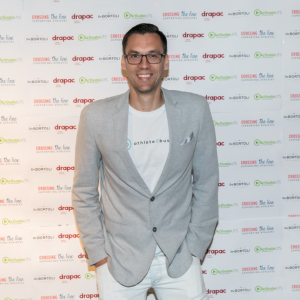
As I write this and perform my day to day duties of athlete2business, I feel like I’m playing basketball again! I’m finally fulfilled and passionate about what I do again!
I’m lucky enough to have personal fulfillment as a husband and a father of 2 beautiful daughters, I can now also add professional fulfillment as I chase my new dream of becoming the global leader in athlete transition services.
I wouldn’t have found this passion If I didn’t:
- Work my ass off in sales and try to be the very best I can, even though I wasn’t passionate about what I was selling.
- Apply the same principals from sport into the business world.
- Accept the fact that basketball was over and focus on learning and developing new skills.
- Obsess about learning the best sales process and business productivity.
- Listen to all those business podcasts and read business books.
- Learn to enjoy working in B2B sales by obsessing about the best sales process and hitting sales targets.
- Network like a beast and build towards my personal post-sport brand.
- Surround myself with like-minded, ambitious and positive people.
- Learn how to sell and market a product/service by working in B2B sales.
Mistakes I made that other athletes should avoid:
- I didn’t care about anything outside of basketball.
- I never read a non-fiction book until basketball was over.
- I had a plan B, but not another plan A
- I did the bare minimum to up-skill myself whilst I was playing basketball.
- Whilst playing basketball I thought about my post-sport career zero times.
- Whist playing basketball I planned for my post-sport career zero times.
- I wish I took University more seriously.
- I wish it didn’t take me 1.5 years to start applying the lessons/skills from sport into business.
- During my playing career I should’ve started to build my post-sport network via networking events and LinkedIn.
A couple of important things I’ve learned is to never stopping dreaming, finding passion and aspiring for greatness. For a period of time, I lost that ambition but once I found it again I realized you never really stop being an athlete. Instead of being competitive, hard working, resilient, determined, motivated, disciplined and focused on the court, I now apply those high performing habits in the boardroom!
Now I’m highly passionate about instilling that athlete culture within business teams by placing high performing athlete-candidates within companies who can utilize their high performing habits, unique skills and experiences.
I also work hand in hand with sports teams & organisation, current and former athletes directly by conducting various workshops focused on helping athletes find Another Plan A and provide them with essential tools to ensure a successful transition into a post-sport life.




